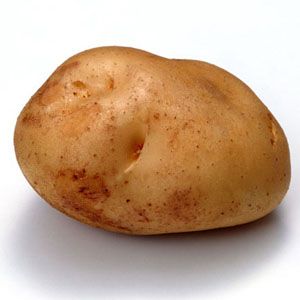Spring is the active period of bacterial growth and is prone to bacterial poisoning or infectious diseases. The Food and Drug Administration has issued safety warnings a few days ago. The food and drug supervision department has suggested that to prevent bacterial contamination, eat as little as possible on unsanitary street food stalls or license-infected small restaurants, and not eat foods that exceed the shelf life; when buying raw meat, Pay attention to identifying the quarantine seal of the quarantine department.

Experts advise: Spring should be alert to the following common food poisoning.
Pickled sauerkraut and pickles last winter
As the temperature rises in spring, the nitrite content in sauerkraut and pickles will increase. If one eats too much or the color is too dark and the sauerkraut or pickles that have become sticky, it will easily cause nitrite poisoning.
Rotten Chinese cabbage
The leaves of Chinese cabbage contain more nitrates, which will increase significantly after rot. Once ingested in large quantities, it will be reduced to nitrite and poisoned by intestinal bacteria.
Sprouted potato
When potatoes are germinated or immature, they contain the solanine, a toxic substance, which can cause poisoning when ingested. Care should be taken to store potatoes at low temperatures and without direct sunlight. Do not use germinated and vegetal potatoes to make dishes. When families eat vegetal potatoes, at least 0.2 cm of skin should be cut and cooked and cooked; Can add a little vinegar, can destroy toxins.
Fresh daylily
Fresh lily contains colchicine, which is non-toxic, but it is poisoned when it is oxidized into oxidized colchicine. Nausea, vomiting, abdominal pain, diarrhea, thirst, and other symptoms may occur. In severe cases, bloody stools, hematuria, or anuria may occur. Colchicine is water-soluble, fresh cauliflower can be boiled in boiling water, and then fully immersed in fresh water, rinse, so that the colchicine dissolve in the water to the maximum, and then cook again, can be safely eaten.
Fresh fungus
Fresh fungus contains a porphyrin-based light-sensitive substance, which is distributed to human epidermal cells along with the blood circulation. When exposed to the sun, it can cause solar dermatitis. This toxic light-sensitive substance is also easily absorbed by the throat mucosa, causing throat edema.
Wild mushroom
Every spring, the poisonous mushroom grows vigorously, which is the high season of poisoning caused by mushroom poisoning. There is no obvious difference between poisonous mushrooms and edible mushrooms. It is difficult to identify with only the naked eye, and it is easy to cause serious food poisoning due to ingestion. The symptoms of poisonous mushroom poisoning are serious and the mortality rate is extremely high.
Frozen seafood
If frozen seafood is stored for a long time or stored improperly, it will be prone to spoilage, and the proteins contained in it will be decomposed to produce poisonous substances such as amines and soluble toxic proteins. Even if they are boiled, they will not completely destroy their toxic properties. Therefore, we should be cautiously eating frozen seafood in the spring.
Poisonous wild herbs
As the weather warms, various wild vegetables grow. If you eat poisonous wild vegetables or improperly processed wild vegetables, you can easily cause poisoning, and serious ones will be life-threatening. Do not eat unfamiliar wild vegetables. If symptoms of eating wild vegetables are unwell, you should go to the hospital promptly.
Mild sugar cane
Moldy sugar cane is very toxic. After eating for 2 to 8 hours, symptoms such as vomiting, dizziness, and headache will occur. In severe cases, coma and respiratory failure will occur, and the mortality rate and sequelae rate will be 50%.
2019-Ncov Saliva Antigen Rapid Test Kit,2019-Ncov Antigen Test Kit (Colloidal Gold Method),2019 Ncov S-Rbd Neutralizing Antibody,Influenza A,B Virus
Guangdong Hecin Scientific, Inc. , https://www.hecinscientific.com